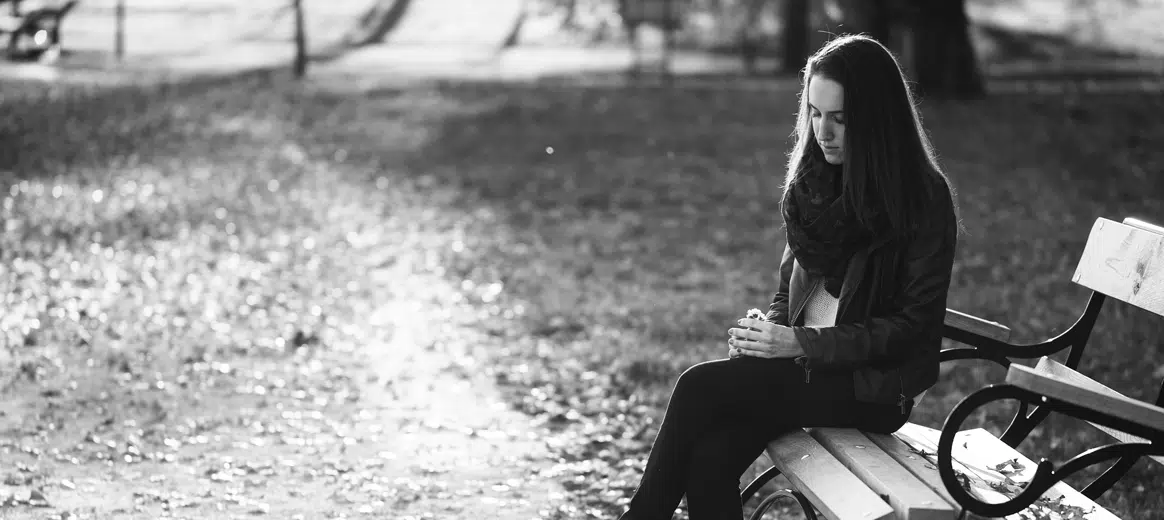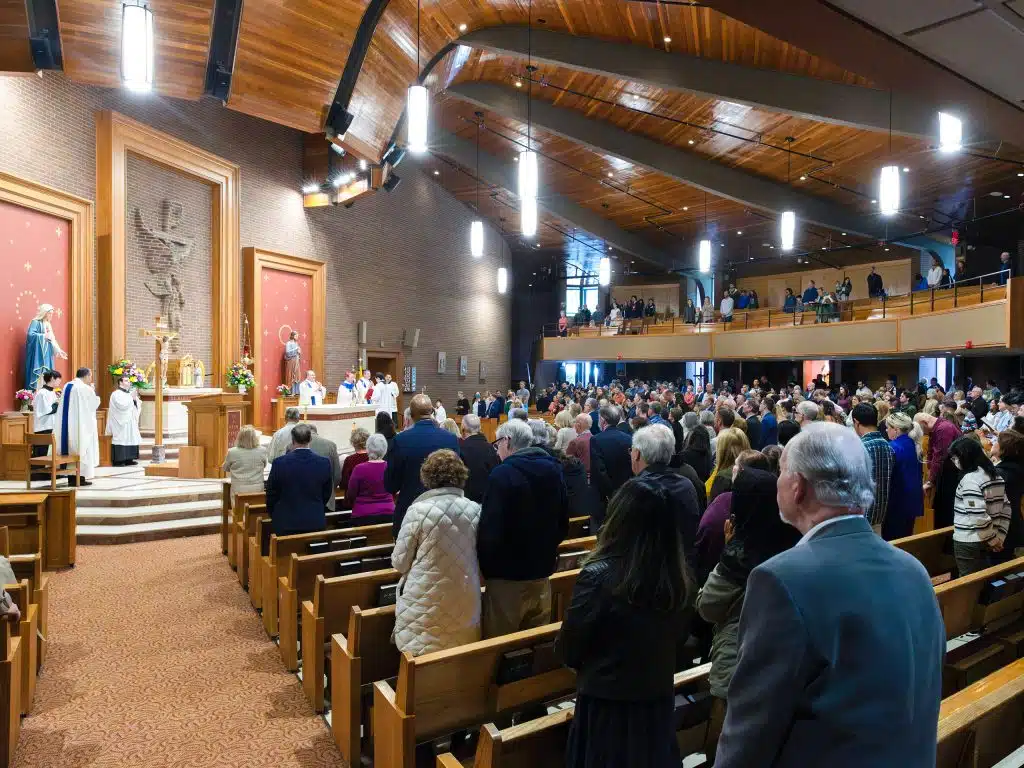Reprinted with permission of cultureoflife.org.
No one anticipated last Easter that we would be home, a year later, involuntarily missing the Holy Week services; nor were countless parents prepared to be ‘homeschooling’ their children, albeit with some heroic efforts by educators to support the task via ‘e-learning’; nor were record numbers of employed adults expecting to be facing temporary unemployment, lower hours, or modified work environments (aka my kitchen table). What each of these unexpected events has in common is their cause — COVID 19 — and their impact: stress — from some combination of isolation, strain on interpersonal relationships, insecurity about some area of life, and fear about the future and the health of loved ones or even oneself.
The Social Impact of a Pandemic
This current pandemic, by its very nature, is a crisis that is overwhelming because of lack of predictability and control. While we each can and should keep informed about how to best promote the safety of ourselves and others, the limits we experience regarding how and where the virus is having its impact creates a great deal of vulnerability. For example, the hoarding phenomenon we observe in stores is not unexpected when people lack control in situations beyond their grasp, where daily life has been interrupted. Consequently, we see some extreme panic reactions among the population as they strive to protect themselves from this unknown. While the prescribed social distancing has merit, there are those fearful to come out of their homes, even to seek needed medical care, with at times disastrous results. Most infamously, I suppose, is the well-documented run on paper and cleaning products. While one can understand logically a desire for anti-(insert feared microbe here) cleansers, hoarding of other materials seemingly have sprung from rumored scarcity myths that were promulgated online.
Research on human behavior is clear that one of the reasons that people will stockpile is fear that they will not be able to access the product in the future; the COVID-19 pandemic has caused such uncertainty that people are behaving as if they won’t be able to go shopping for needed groceries for weeks or months, which, now a month or so in, has not been the case in most jurisdictions.
Several factors appear to be at play with respect to people’s atypical reactions: mistrust of those in authority, fear of future losses and a focus on the short term. Consequently, people are making decisions during this unprecedented (in modern times) pandemic, in a manner quite opposite of their usual decision making, which would reflect some implicit trust of those in authority (or at least the economic markets), and a focus on long-term needs of self and family, along with a toleration of some uncertainty in the moment that is a part of life.
Coping Strategies and Fostering Hope
While the panic behavior observed is not unexpected, is it neither the best we can do as human persons with free will and rational minds. As understandable as the fear response is in the face of life being threatened, for people of faith there is a greater truth which recognizes that the illusion of control we implicitly rely upon day to day leaves us just as vulnerable. Yet, when we are given a glimpse beyond the illusion as we are given now, perhaps it is a gift that can refocus us in whom we have our hope. And though we may feel alone, we can take solace in the realization that we are never alone. This reality of hope in a benevolent, merciful God, provides the surest foundation for moving forward with whatever strategy we choose to cope.
At the same time, our faith is lived out on the natural level, and practical coping tools are necessary. One analysis suggests the following: stay informed and check the facts; public sources of information (aka the media) when they provide responsible information can do much to quell fear; know your local food distribution networks which are functioning in order to be prepared; and advocate for fair pricing of commodities. Beginning with these general principles, it is important to consider how they are best enacted with virtue and charity.
With respect to staying informed, it is best to be moderate in one’s consumption of the news, seeking out sources that can be trusted and avoiding those sources which only heighten your anxiety. In other words, while it is not wise to be uninformed, it is similarly unhealthy to be obsessed; daily tracking of the numbers of people infected, hospitalized, or dying is wearisome for the soul, and only serves to remind us how little we can do personally to eradicate the virus. What we can do is concretely address the negative impacts of stress we experience. If you are naturally introverted and your tendency is to isolate further, it is important to move against this; the temporary relief you may experience from being away from the world’s stress will have diminishing returns. Be creative in staying connected with others, even from a physical distance. It is important to have an outlet for your thoughts and feelings, even if you share them sparingly; the consequence of diminished social interactions can be a move towards unhealthy means of coping with those thoughts and feelings, often bingeing (videos, food, or drink) to fill the time and space.
Some are quarantined with family or roommates, spending uncommon amounts of time together, which can strain even the best of relationships. This is natural, but difficult, and at the same time an opportunity to practice forgiveness and tolerance. Taking the perspective that everyone is experiencing an increased ambient level of stress, and so are more prone to exhibit their habitual (and least attractive) stress response more frequently or intensely. Similarly, those who are fearful of losing their employment or educational opportunities may be more on edge. For those experiencing such stress, relaxation techniques and being vigilant about one’s irrational thoughts can bring peace (see Christian Meditation and Therapy for Anxiety Disorders). The current crisis of course brings legitimate fears about the health and safety of oneself and loved ones. It is important to have balanced, reasonable self-care and appropriate boundaries in order to take necessary precautions. At the same time, the stress on one’s body from habitual, intense worry causes a great deal of harm as well. In other words, too much worry about the current crisis can make one more susceptible to illnesses of a variety of sorts, and so as with most things, finding the golden mean is the key.
Finally, the way in which each person prepares to meet the need for food and other material goods must also consider the common good. When supplies are limited, we know also that our neighbor (figuratively and perhaps literally) is also likely in need. Finding the proper balanced point of being prepared, but not over-buying and leaving nothing for the next family, is critical. Finally, and in a similar vein, we must not only ensure that our neighbor has food to eat, but also that our neighbor has companionship to be sustained. In the current quarantine or 6-feet legislated isolation, the natural need for human contact and touch can be difficult to attain. Yet those who live alone or in difficult circumstances need this attention and affection now more than ever. Finding creative ways to “connect” with those most in need, not only is a clear response to the mandate to strive for virtue, but also can “distract” us from the unhealthy temptation to live in fear, forgetting what brings value to life — being a gift ourselves to those whom we are privileged to meet along the journey.
Moncher is program coordinator for the diocesan Office of Victim Assistance.



Disconnected spirituality